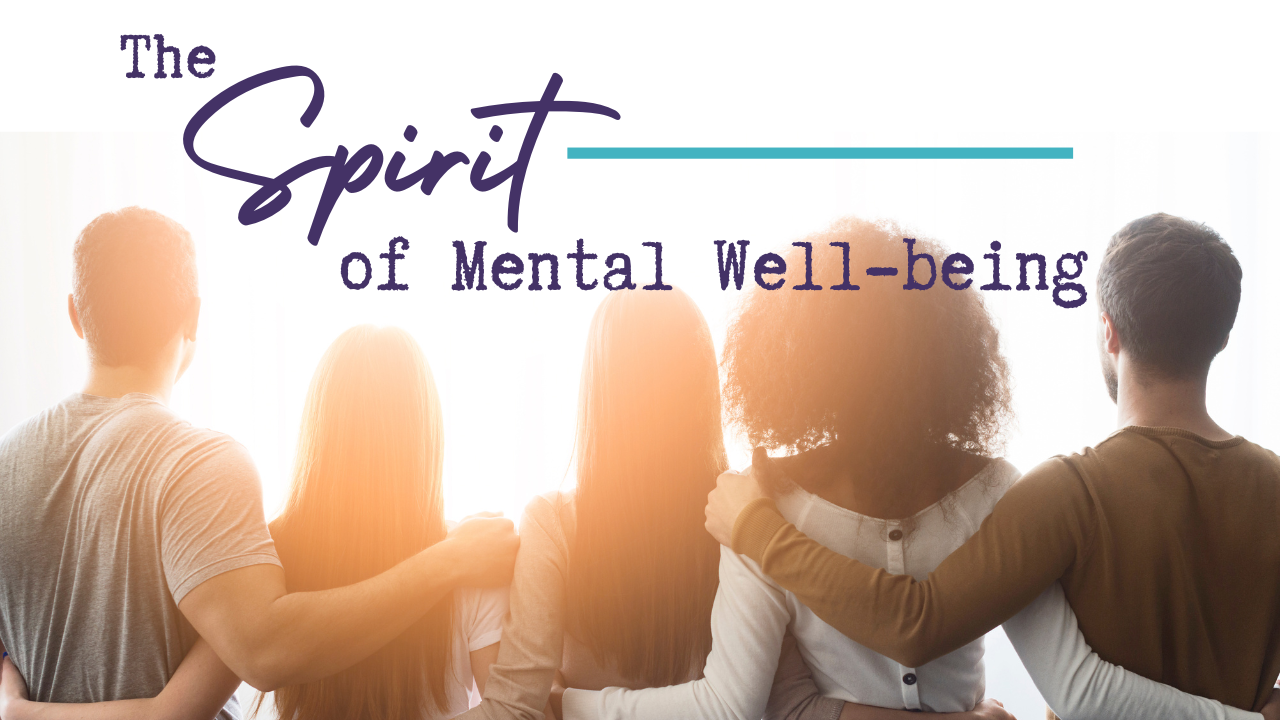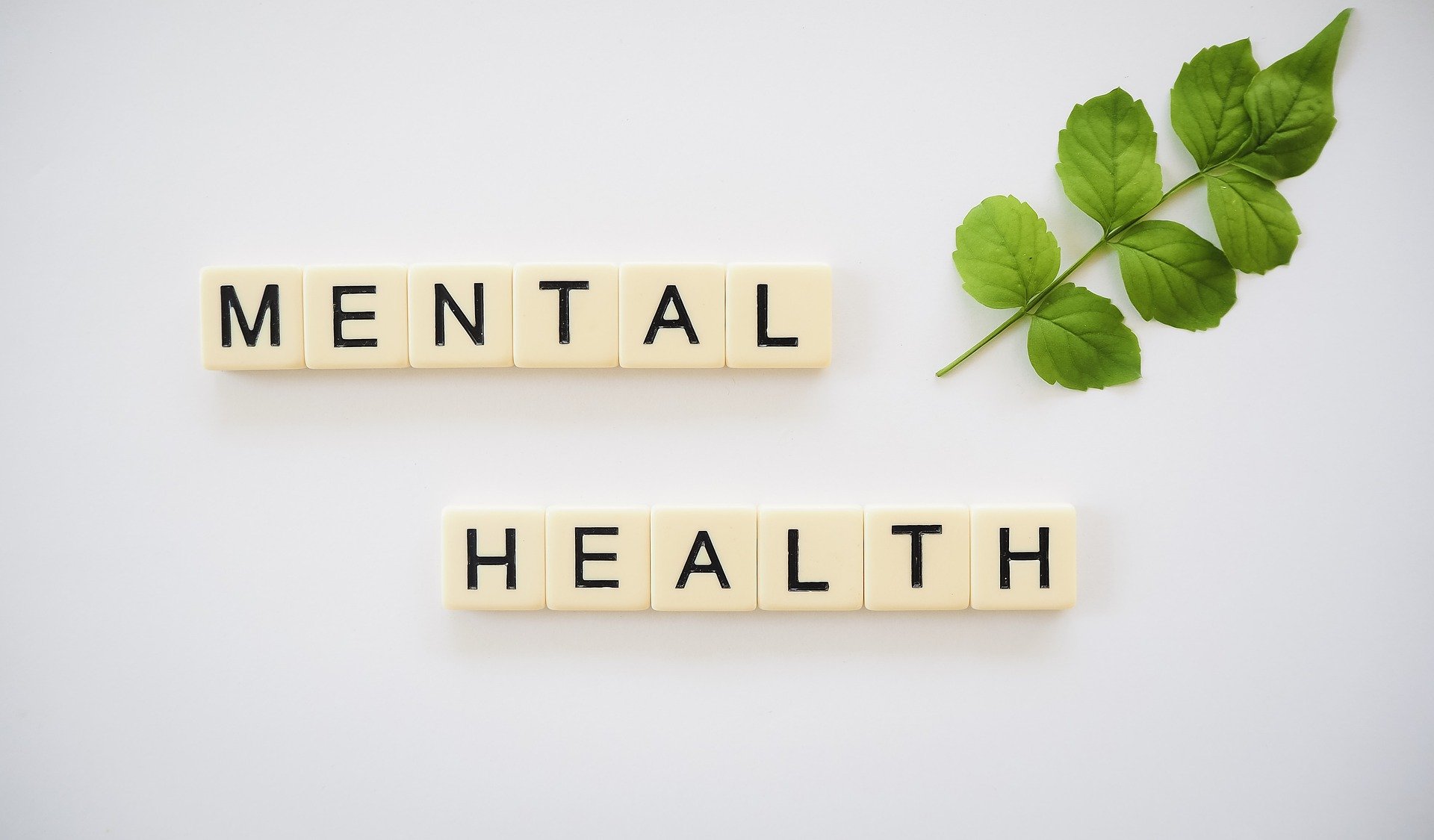
Can you think of a person in your social circle who makes you laugh easily, helps you feel heard and understood, and feels energizing to be around? Relationships, and relational health, are instrumental in our mental well-being. As part of our Mental Health Awareness Month series, which we kicked off last week (https://bit.ly/3VzZslH), we will be exploring mental wellbeing from a biopsychosocial-spiritual framework. Last week, we focused on awareness and recognition of some psychological symptoms of mental distress and avenues for support. This week we are diving into our social health, or relationships.
Having supportive social connections is associated with better mental health, higher self-esteem, better recovery from illness and disease, and a longer lifespan. The longest standing relationship we will have in our lifetime is usually with our romantic partner, but if we are lucky, we experience extremely fulfilling relationships in all walks of life: parenthood, friendship, colleagues, community, and more. Investing in our social health can be challenging if you are very introverted, isolated, or maybe are struggling with mental health symptoms that make it difficult to give energy to your relationships. Relationships can also be a source of stress when there is conflict or unhealthy boundaries, which we will talk about in a moment. First, let’s explore – how do we get support for our wellbeing through relationships?
Soliciting Support
Bringing you back to the person you thought of in your life who gives you joy and energy, what type of effect have they had on you when you were struggling? We can derive a lot of healing from being around people who feed us emotionally, rather than feed from us. During times of struggle, these key support people provide a safe space to ask for support. How often do you ask people in your support system for a venting or processing session, or even advice?
Keeping your emotions bottled up can lead to an increase in cortisol levels. Over a long period of time this will likely impact your physical and mental wellbeing. Whether you like to communicate over the phone, video chat, texting, or journaling, talking it out can be a big relief to your nervous system. When asking for support, clarify whether you need someone to listen, or if you are asking for solutions. It can feel awkward asking other people to explicitly support you, so here are a few conversation starters to have in your toolbox for initiating that conversation:
- Can I talk through something with you? I just need someone to listen to me right now, I’m not ready to take action or think of solutions.
- I’m having a tough day and just needed to share that with someone.
- I’ve been feeling kind of lonely lately. Do you want to meet me at the park for some quiet time? I think it would be helpful for me to be around someone right now.
Giving Support
When someone approaches us for support, our instinct is to try to jump in and offer a quick fix, or solutions to solve a problem. That can often be overwhelming to the person needing support, so try to temper that initial reaction to offer solutions and make sure you are “listening to listen” first, rather than listening to react. Here are a few suggestions to keep in your toolbox for how to respond when someone needs support from you:
- I hear you, and I am here for you. Do you want to share a little more about what has been going on, or do you want to think of some action steps together?
- I’m sorry that you have been dealing with this. I understand how you feel. Is there anything I can do to help?
- Hey, I was just thinking about you. You don’t need to respond, but I wanted to let you know I’m here for you if you want to talk.
- I hate that this happened to you, it sounds really challenging. Thank you for opening up to me, I will do what I can to support you.
Setting Boundaries
Remember that person you were thinking about when prompted with “brings you joy” and “makes you feel understood”? Now, think of the opposite. Do you have someone in your life who feels draining to be around, like they emotionally feed from you, but you get nothing in return? Maybe someone who is overwhelmingly negative and critical, quick to stir up conflict? Yes… them.
First, take a deep breath. You are not alone! We all have relationships that challenge us.
Second, can you find points of empathy for this person? If we can have empathy, it will help us be less reactive to the relationship dynamics that bother us. For example, understanding that your colleague is going through a difficult divorce may help you understand their bluntness during team check-ins. Knowing that your colleague has a high level of personal distress that has nothing to do with you can help you de-personalize their blunt comments in the team meetings.
Third, in all relationships, we need boundaries. Boundaries are perhaps the most uncomfortable, but most essential, function in relationships; especially to protect our mental wellbeing. Boundaries help us communicate our limits and teach people how we would like to be treated.
What does it look like to set a boundary? You decide for yourself what your boundaries are, and it is your responsibility to communicate them. Ideally, you communicate boundaries verbally and follow through with your behavior. Here are a few ways to clearly state your limit or expectation:
- I am not in a space where I can hear about that right now. I would appreciate it if you spoke to someone else about this.
- These conversations tend to turn into criticism about me, which makes me completely shut down. I can’t continue having these conversations unless you respond respectfully and listen, and I will offer you the same.
- I don’t let people talk to me that way. I think we should take a break from this conversation and revisit it in a few hours/days.
- I would love to help/attend, but I would be overcommitting myself. I am sorry.
- I am struggling myself right now and I don’t feel equipped to be your primary support.
Discomfort from setting boundaries often comes from other people’s reaction to them. But remember, in adult relationships, it is not your responsibility to manage the emotional experience of others. We are often guilty of not setting a boundary in fear of hurting the other person’s feelings. We should be respectful and kind, but we are each responsible for our own emotions. If you do not follow through on your boundary, the person it is most likely hurting is you. Also remember, the people who react most strongly to your boundary setting are likely the people who benefitted the most from your lack of a boundary.
While setting boundaries can sound like you are handing out restrictions left and right, it is usually very liberating. We invite you to actively partake in giving and receiving support this month in honor of Mental Health Awareness and explore boundaries for yourself that could benefit your mental and social health.
—
Relational Harm
Reading about giving and receiving support and setting boundaries may have made you consider whether you’re in a healthy relationship. Please know that there are resources available for you if you suspect you are in a harmful relationship.
If someone you are in a close relationship with says hurtful and demeaning things to you, threatens physical harm, uses violence such as pushing, restraining, or throwing objects, demonstrates jealousy and controlling behavior – that is NOT okay.
National Domestic Violence Hotline: 800-799-7233, or text START to 88788
North Carolina Coalition Against Domestic Violence
Posted in Mental Health AwarenessTagged #mentalhealth, Mental Health












